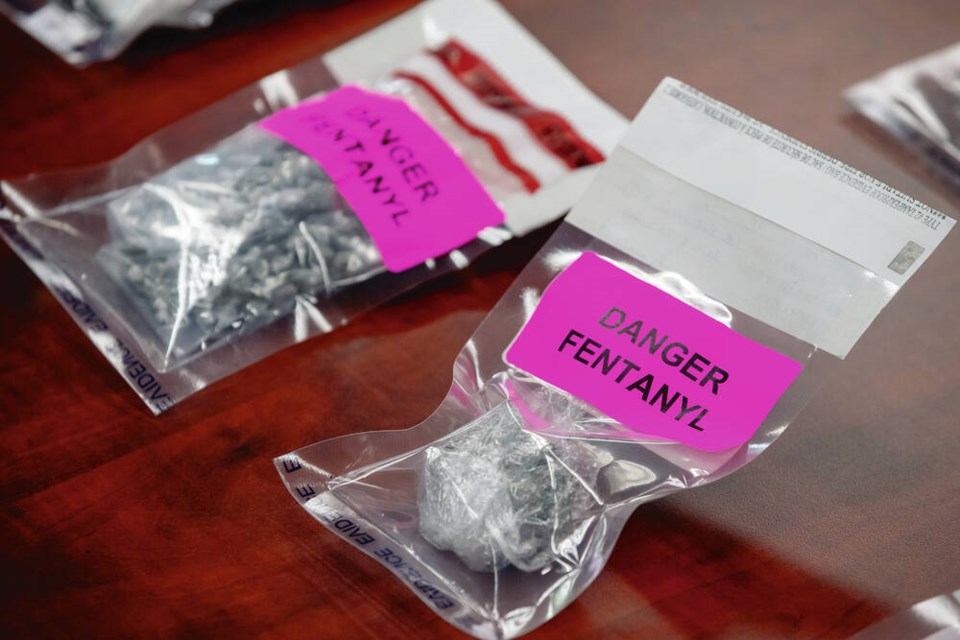A commentary by an infectious-diseases and critical-care physician in Nanaimo.
Epidemics. Pandemics. Lockdowns. Mandates. Health emergencies.
We are tired of bombardment with health crises and their effects on us.
There is another catastrophe that has been unfolding for years and that is clearly accelerating. But we seem disinterested in addressing it — and like COVID-19, we are unsure how to manage it.
Yet it indeed affects us all: the explosion of drug use and its consequences.
Over the past seven weeks, there have been nine deaths related to drug overdose in our ICU — a mortality level from a “disease” that would be front-page news if due to a viral respiratory infection. And this reflects only the tip of the iceberg of complications of substance use. Yet the level of public concern has been subdued.
Why should this matter?
The death of so many of our young is a tragedy. Many may not be contributors to our economy and community, are often homeless and impoverished, and frequently mentally ill, but they are our fellow citizens.
Marginalized, they are still deserving of our compassion and care: they love and are loved. Black lives matter — and so do those of the destitute and homeless and substance-using. This should not be an issue that only becomes important when a politician’s child dies.
Draconian measures were instituted during the COVID crisis to avoid overwhelming the health care system, which indeed is more tenuous now than then.
Yet we are ignoring the significant effects of substance use on health-care resources, from the diversion of emergency health services to deal with overdoses to the excessive utilization of acute care resources, not to mention the effect on outpatient services struggling to address the social and mental-health issues associated with substance use.
We are at similar risk of overwhelming our health-care capacity.
Even if these are not compelling reasons to care about this issue, the economic costs to us all as taxpayers should alarm us. These are not just the expenditures needed to manage the complications of substance use in individuals, but the costs to us all of associated increased criminal activity and the financial and societal impact of increasing drug use and homelessness on our businesses and communities.
Even if it is easy to ignore the human cost of this epidemic, the effect on our pocketbooks should raise concern.
What can be done?
Clearly the issues leading to, perpetuating and worsening this epidemic are complex, intertwined and challenging to resolve. Prohibition and criminalization have failed. Harm reduction is a strategy of risk mitigation, but cannot itself “flatten the curve.” And our treatment efforts have been unsuccessful.
We cannot address the root causes that underlie drug use without compassion and acceptance of those who use substances. And this starts by acknowledging the innate human desire to escape psychological and physical distress or pursue pleasure that leads us all to seek mood alteration, whether it be a beer after a hard day, the exhilaration of a powder run or the sanctuary of a fentanyl high.
We need to address the devastating psychological and social effects of inflation, exorbitant rents, lack of affordable housing and other factors that contribute to homelessness and poverty. And we need better mental-health services.
One of the major reasons for excessive deaths and overdoses — as well as other complications of substance use — is the constant adulteration and changing potency of the drug supply.
At the least, we need better means of monitoring this and alerting front-line workers, so we can anticipate and treat our patients more effectively.
Safe sites for drug use are a component of harm reduction. But the worsening acute medical complications of drug use and the impact on acute care resources — from narcotic overdoses refractory to treatment to serotonin syndrome to benzodiazepine withdrawal with seizures to neutropenia and vasculitis from levamisole — dictate that a safe drug supply must be a consideration in an overall harm reduction effort.
Of course, none of these strategies will be effective without treatment of addiction, which must recognize and address effectively and compassionately the underlying psychological, mental-health and social issues that lead to substance use.
I don’t pretend to have the solutions; I am no expert in this field. But I manage a lot of patients with substance-use issues and their complications. I care about them and our community.
And it is abundantly clear that what we are doing now is failing and we must do better. Because this matters. To us all.



